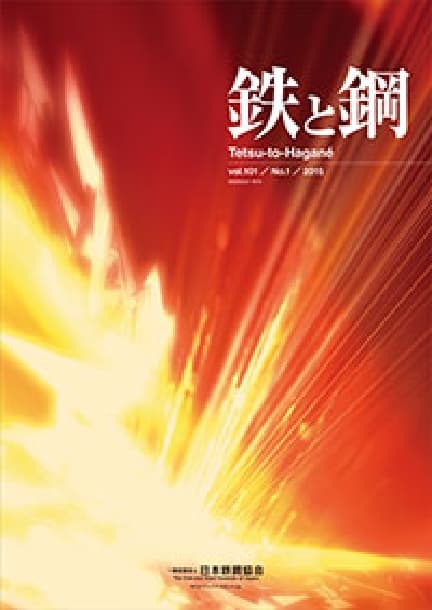Water Model Experiment on the Motion of a Non-spherical Particle in Molten Steel Based on Simultaneous Visualization of the Particle and Surrounding Flow
Goichi MATSUI, Manabu IGUCHI
pp. 643-648
Abstract
This study deals with the mechanism of small-body-falling namely the vortex-body interaction. The body is regarded as a model for nonmetallic inclusions moving or floating in molten steel. In the study visualization experiments for the motion of a small thin disk falling down in water have been conducted. The motion of the thin disk and its surrounding water velocity field were simultaneously measured using the MOFIA system. The velocity field around the disk was measured by particle image velocimetry (PIV). Fluorescent tracer particles with an average diameter of 10μm were used to separate the wavelengths from both that of YAG laser and those of lights for images taken by a CCD camera. The three dimensional motion of the disk was reconstructed using the images of two high-speed cameras. The experimental results collectively show that the motion of the disk was affected by its density and thickness. The motion changed from two-dimensional zigzag motion to spiral motion with an increase in the density of disk. In the case of a high density disk, a chaotic motion was observed.
Readers Who Read This Article Also Read
Tetsu-to-Hagané Vol.62(1976), No.1
Tetsu-to-Hagané Vol.94(2008), No.3
Tetsu-to-Hagané Vol.88(2002), No.5










